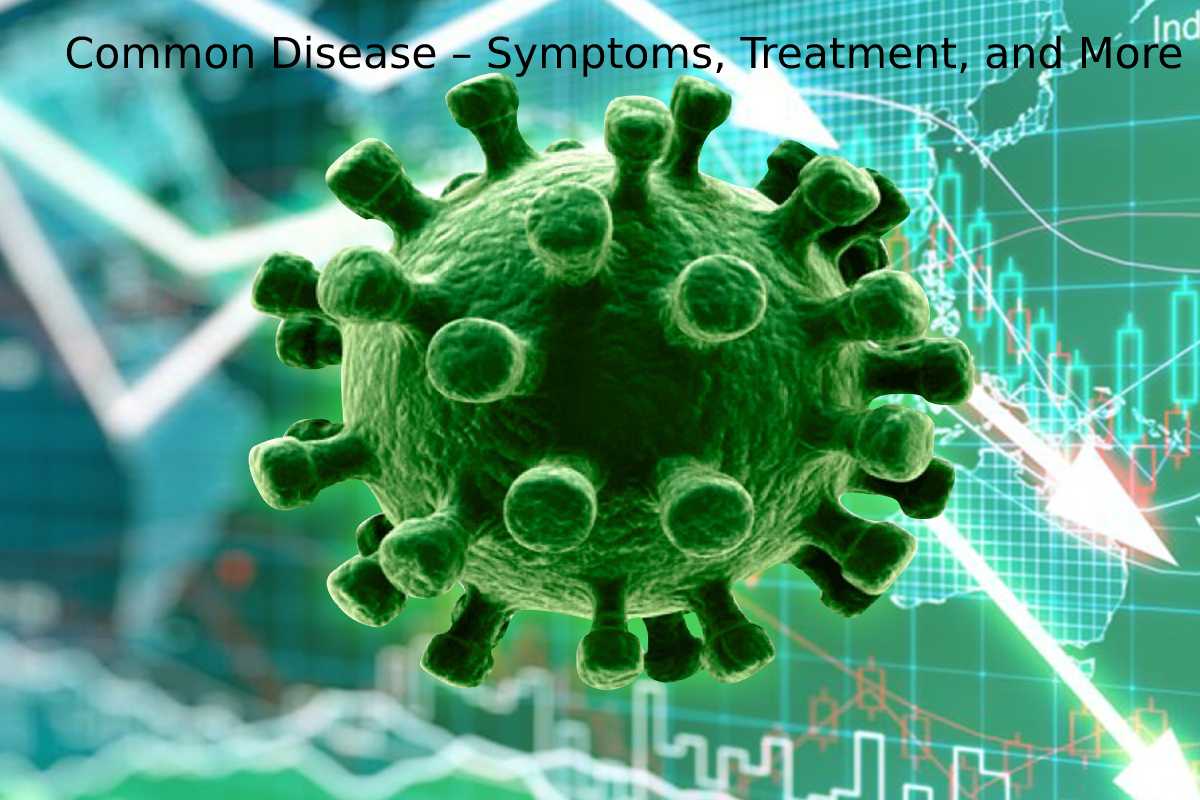Table of Contents
Common Disease
Cause of Common Disease Immune systems that are particularly sensitive and react when exposed to allergens are found in allergy sufferers.
Foods (such as nuts, eggs, milk, soy, shellfish, and wheat), as well as pollen, mildew, latex, and pet dander, are examples of common allergies.
Allergies
Allergens, typically toxic substances, cause allergies, which are an immunological reaction.
Symptoms
The symptoms of allergies vary significantly since so many potential causes exist. Pet dander and other airborne allergens, such as pollen, are prone to:
- Itchy eyes, a runny nose, a stuffy nose, puffy eyes, watery eyes, sneezing, and an inflamed, scratchy throat
Treatment
- Eliminating or avoiding the source is the simplest and best strategy to treat allergies. Some alterations to your way of life, when unavoidable, can lessen your allergy symptoms.
- For instance, if you have a dust mite allergy, try to keep your room tidy and dust-free by routinely cleaning, dusting, and washing your bedding.
Cold and Flu
The two most typical ailments among college students are colds and the flu.
Causes
- These two conditions are both upper respiratory infections, which affect your nose, throat, and lungs.
- By causing the nose and throat membranes to become more inflamed, viruses can cause both colds and the flu.
- Hand-to-hand contact is how these viruses are most commonly spread.
Symptoms
- Flu symptoms appear rapidly and spread over the entire body. Symptoms of the flu, which are typically more severe than colds, include:
- 100-degree temperature; • headache; • more extreme discomfort and exhaustion; and • a more persistent, frequently dry cough.
Treatment
You should seek medical attention if something is making you uncomfortable.
Get medical help right away if you have:
- a temperature of 102 °F or higher (which may indicate a more severe infection),
- a persistent cough, especially when accompanied by a high fever (which could indicate pneumonia),
Conjunctivitis (“pink eye“)
Causes
- There are several potential causes of conjunctivitis, an inflammation of the transparent membrane (conjunctiva) that lines your eyelids and a portion of your eyeballs.
- A bacterial or viral infection could cause it, an allergy to pollen or animal dander, or environmental irritants (smoke, chlorine, lens solution, etc.).
Symptoms
- The following symptoms redness, stinging, tearing, burning to feel, pus-like discharge, and crusting of the eyelids, can last from irregular hours to many weeks.
- The whites of your eyes will seem pink or red because conjunctivitis irritates the tiny blood vessels in the conjunctiva to develop more noticeable.
- Your eyelids may probably feel stuck shut when you wake up, and your vision might not be as clear as usual.
Treatment
- Early diagnosis is critical because pink eye is very contagious.
- Viral conjunctivitis resolves on its own, bacterial instances can be treated with antibiotic eye drops, and allergic reactions can be managed with various eye treatments.
Diarrhea
Causes
- Bacterial illness brought on by tainted water or food
- Alcohol abuse or excessive use of laxatives; viral infection; parasites that can enter the body through food or water; food intolerance, such as the inability to digest lactose, the sugar in milk.
- Medication, such as some antibiotics or antacids covering magnesium; menstrual cramps; stress or a panic attack.
- Symptoms include watery, loose stools, frequent bowel movements, abdominal pain or cramping, nausea, and bloating. Depending on the underlying cause, fever or bloody feces may also be present.
Treatment
- Usually, diarrhea will go away in a day or two, but a persistent case may result in complications. Dehydration is the leading cause of concern.
- Consult a doctor if you experience dehydration symptoms, a fever of more than 102 degrees Fahrenheit, bloody stools (black and tarry).
- Intense chest or abdominal pain, or diarrhea that lasts more than three days. Here are some tips for treating diarrhea on your own:
- Steer clear of foods that contain milk, are oily, have high fiber content, or are very sweet, as these are likely to worsen diarrhea.
Avoid alcohol and caffeine
- If you are showing signs of dehydration, avoid eating solid meals (thirst, light-headed, dark urine). Instead, if vomiting is not happening, consume around 2 cups of clear liquids every hour,.
- Such as broth and sports drinks. Your body needs sodium and sugar to make up for the water it loses, so water alone is insufficient.
